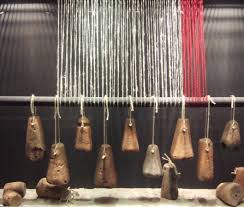2700 Years of Female Silence

Mary Beard, at the London Review of Books, has written a phenomenal essay on women and speech in the public sphere. “I want to start very near the beginning of the tradition of Western literature, and its first recorded example of a man telling a woman to ‘shut up’,” she writes, discussing the Odyssey, and the moment when Telemachus tells his mother Penelope to “go back up into your quarters, and take up your own work, the loom and the distaff… speech will be the business of men.”
Right where written evidence for Western culture starts, women’s voices are not being heard in the public sphere; more than that, as Homer has it, an integral part of growing up, as a man, is learning to take control of public utterance and to silence the female of the species.
Beard takes a “very long view” on the subject of women who speak up “in order to help us get beyond the simple diagnosis of ‘misogyny’ that we tend a bit lazily to fall back on… if we want to understand — and do something about — the fact that women, even when they are not silenced, still have to pay a very high price for being heard, we have to recognise that it is a bit more complicated and that there’s a long back-story.” She goes back through public record:
One earnest Roman anthologist of the first century ad was able to rake up just three examples of ‘women whose natural condition did not manage to keep them silent in the forum’. His descriptions are revealing. The first, a woman called Maesia, successfully defended herself in the courts and ‘because she really had a man’s nature behind the appearance of a woman was called the “androgyne”’. The second, Afrania, used to initiate legal cases herself and was ‘impudent’ enough to plead in person, so that everyone became tired out with her ‘barking’ or ‘yapping’ (she still isn’t allowed human ‘speech’). We are told that she died in 48 BC, because ‘with unnatural freaks like this it’s more important to record when they died than when they were born.’
There are only two main exceptions in the classical world to this abomination of women’s public speaking. First, women are allowed to speak out as victims and as martyrs — usually to preface their own death. […]
The second exception is more familiar. Occasionally women could legitimately rise up to speak — to defend their homes, their children, their husbands or the interests of other women.
The whole piece is long and fascinating and disturbingly familiar, and ends on this somewhat timeless note: “For a start it doesn’t much matter what line you take as a woman, if you venture into traditional male territory, the abuse comes anyway. It’s not what you say that prompts it, it’s the fact you’re saying it.” [LRB]